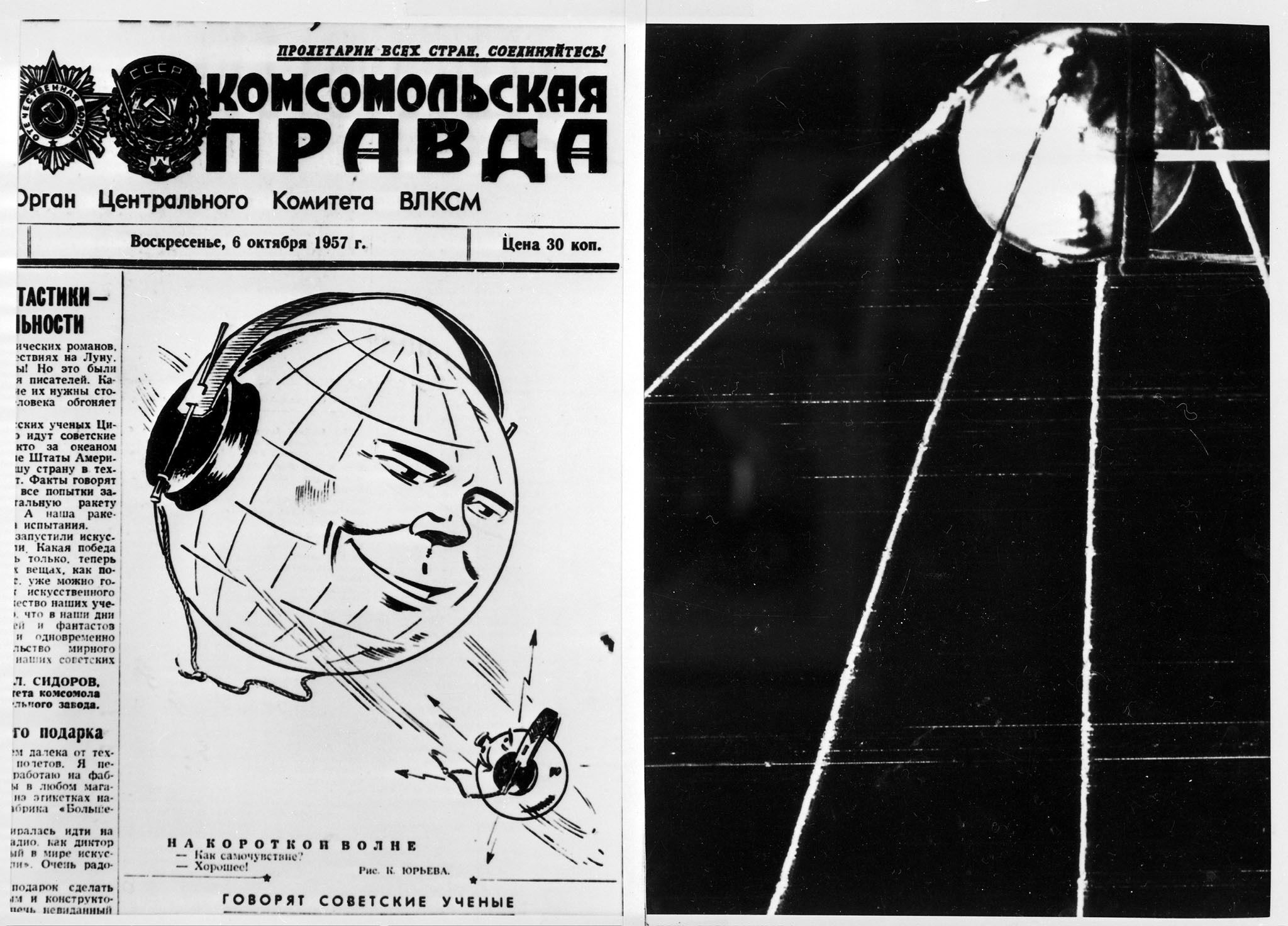
On October 4, 1957, Moscow declared one of its greatest ever triumphs: in a brief radio telegram, the state wires service Tass announced the first successful launch of an artificial satellite into the Earth's orbit.
The Soviet republics were informed that the ball-shaped Sputnik I—58 centimetres (22 inches) in diameter and 83.6 kilograms (141 pounds) in weight—was orbiting at a speed of 8,000 meters per second.
"The Russians have won the race. The entire world is following the satellite's flight around the Earth," Communist Party mouthpiece Pravda declared. "Honor and glory to the Soviet workers in science and technology."
Sputnik—a name that literally translates as "satellite"—spent 92 days in the Earth's orbit, circling the planet 1,440 times, before losing speed, slipping into the atmosphere and burning up on re-entry.
So secretive was the program around it that one of the designers who produced the rocket that launched Sputnik into orbit, Nikolai Shiganov, told AFP that he and others only learned about the success of their work on the radio.
"It was a tiny dot which shone in the sun because of its glossy surface," Shiganov said, recalling a sunny October day when he could see the ubiquitous satellite with his naked eye.
The ultimate success of Korolyov's launch came as a result of his persistence in pushing the Soviet military to allow him the use of one of the first R-7 rockets, a weapon suited for carrying a hydrogen bomb, to carry the satellite into orbit. It was not only expensive but the sort of top level equipment any military would want to keep secret from potential adversaries.
Korolyov's Sputnik-1 had a design as simple as its name suggests: it was spherical, reportedly insisted on by Korolyov to mimic the Earth's own shape, light and communicated with little else but two radio transmitters and four antennae.
The day Sputnik launched remains an importan date in Russia, even after the fall of Communism. On its 60th anniversary, the Russian Defense Ministry's Zvezda channel called it "the day space became ours."
Even the American magazine Sky and Telescope notes that the beefy, silver "beach ball" ensured the space race started with "humiliation" for the U.S.
"Korolyov versus Werner von Braun. This rivalry determined an entire epoch," Russian state news agency RIA Novosti reminisced on Monday, pitting Sputnik's creator Sergei Korolyov against his German-born counterpart, who was in charge of U.S. space efforts.
"Two genius builders, working on different sides of the Cold War, trying to bring their country into the technological space race," the agency writes. "This dramatic clash is further intensified by the fact that Werner von Braun happened to be a Nazi, taken to the U.S. at the end of the war."
Korolyov, celebrated as a hero of ingenuity now, would later spearhead the effort that launched the first human into space—cosmonaut Yuri Gagarin.
But he was far from being a darling of the Kremlin during his life. Born in modern-day Ukraine, Korolyov spent the first three decades of his life dreaming to become a pilot and studying aircraft design, before Stalinist secret police charged into his apartment in 1938. He spent 10 years in a labor camp for treason, despite not knowing himself what offences he had committed.
Today replicas of Korolyov's design exist throughout Russian museums, while the simple and iconic beep of the sphere, heard around the world even by amateur skygazers is available on recording.
Uncommon Knowledge
Newsweek is committed to challenging conventional wisdom and finding connections in the search for common ground.
Newsweek is committed to challenging conventional wisdom and finding connections in the search for common ground.
About the writer
I am a Staff Writer for Newsweek's international desk. I report on current events in Russia, the former Soviet Union ... Read more
To read how Newsweek uses AI as a newsroom tool, Click here.








